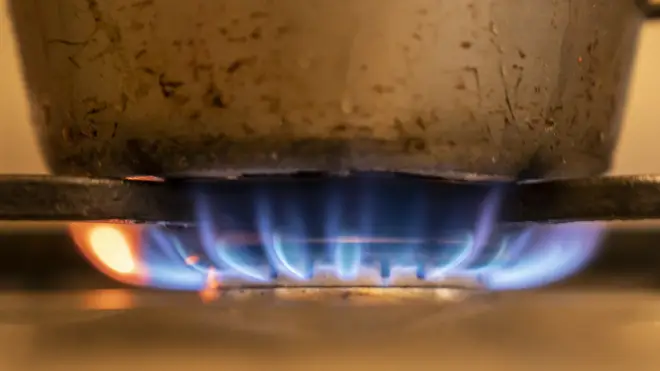
Ali Miraj 12pm - 3pm
17 January 2022, 00:04

Energy bills might spike by more than 50% for millions of households less than three months from now
The Government has a “burning deadline” in the next three weeks to decide how to offset a massive rise in household energy bills, the boss of an energy company has said.
Bills could go up by more than 50% for millions of customers, a rise that could cost average households around £700 per year.
“To some extent their burning deadline is the day that the new level of the price cap gets announced … because that’s when you would think that it becomes obvious they are going up,” said Good Energy boss Nigel Pocklington.
Estimates range but some believe the price cap could be raised to around £2,000 for the average household, from £1,277 today.
“You absolutely need to be concerned for vulnerable households and homes and families that will be put into fuel poverty,” Mr Pocklington told the PA news agency.
“There’s this odd fact of life around your energy bill. You can’t avoid it and yes, there’s a bit of difference in consumption between wealthier households and those that are less well off.
“But it’s not huge, and therefore it’s a form of strangely regressive taxation in some respects. The duke and the dustman, as they used to say, are paying the same per unit cost.”
The Government has several options on how to offset the energy price rises and protect households across the country.
They range from cutting the 5% VAT on energy bills – a £100 saving – getting rid of some levies on energy bills, and expanding the warm home discount.
Many energy companies have also suggested that if the Government got banks to lend between £10 billion to £20 billion to energy companies, the firms could smooth the price rise.
They could use the loans to top up energy bills, and instead charge customers a little bit more over several years to recoup the cost.
But the idea has been criticised by some companies. Bills are likely to remain high for years, so the loans could take a long time to pay back, they say.
The idea’s critics include British Gas’s owner Centrica, which called it a “bailout” earlier this month.
However, Mr Pocklington said it was wrong to call the loans a bailout of energy companies, as they will need to be paid back.
The loans would be used to support customers, so their energy bills do not increase by more than 50% from April.
He said the risk of bailing out energy companies that were badly run has subsided because most of those have gone out of business in recent months because of the crisis.
“There is not a significant moral hazard here. I think anyone who’s still operating in this market is prudently run, and knows what they’re doing, otherwise they would have been knocked over by now.
“We all have the choice in front of us just to keep pushing our prices up to cover the cost of the wholesale market. And that’s the one lever we’ve got.
“No one can expect us not to do that unless there’s some sort of intervention to smooth out those increases.”